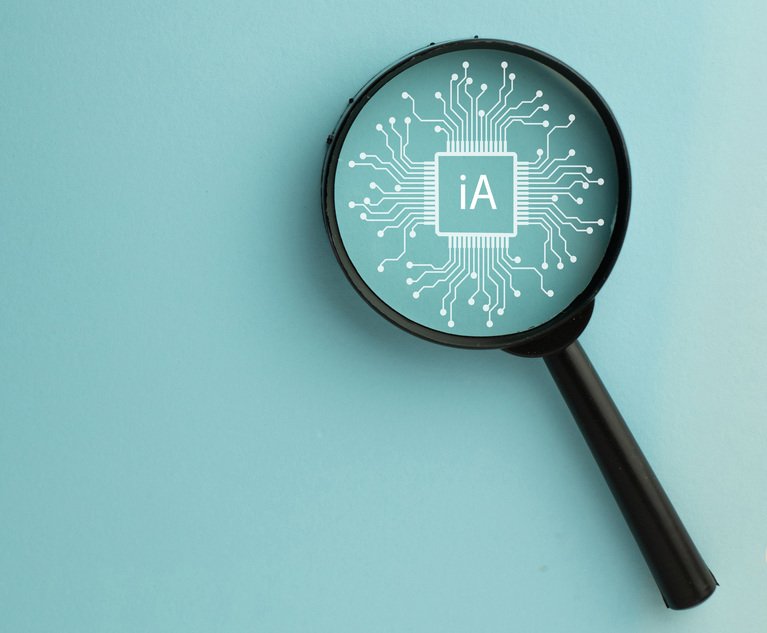
May 28, 2024 | New York Law Journal
Differences Between Leases and Licenses of Real PropertyParties entering into an agreement for the use of real property should consider whether they intend to create a lease or a license because the nature of the arrangement may significantly affect the rights and remedies of the partiest,
By Peter E. Fisch and Salvatore Gogliormella
9 minute read

May 28, 2024 | New York Law Journal
Dispute Prevention: An Overlooked Risk Management ToolIn this article, Myrna Barakat Friedman identifies various forms of potential conflicts and a roadmap that executives, risk managers and counsel can consider to mitigate the risk of disagreements becoming expensive and burdensome disputes with financial, reputational and legal ramifications.
By Myrna Barakat Friedman
9 minute read

May 24, 2024 | New York Law Journal
AI Litigation Spotlight: 'NYT v. OpenAI'Of the many early genAI cases working their way through trial courts, the one that stands out is New York Times Co. v. Microsoft because of its carefully crafted complaint and actual examples of verbatim reproductions of NYT content produced by ChatGPT. Now that the parties have completed briefing on two motions to dismiss (one by OpenAI and the other by Microsoft), it's worth pausing to assess what's at stake, and what lies ahead, in this important case.
By Anjali Dalal and Kate Cassidy
8 minute read

May 23, 2024 | New York Law Journal
'Envy of the World': Equity Markets and the Compelling Need for Robust Disclosure Under Regulation S-KAn overview of why checks and balances of the courts, as well as SEC enforcement, are critical to maintaining disclosures that are needed to maintain the strength of the U.S. markets.
By John Moon and Lori Marks-Esterman
6 minute read

May 22, 2024 | New York Law Journal
'Bohnak v. Marsh & McClennan': Mixing Standing and Damages in Data BreachesA discussion of the recent Second Circuit decision 'Bohnak v. Marsh & McLennan Companies, Inc.' The article evaluates its approach, presents the differences as applied in other circuits, identifies areas in New York state law where this would arguably conflict, and offers practical advice on defending a data breach case in New York in light of this case.
By Judith Archer, Sean Topping and Joe Hughes
8 minute read

May 21, 2024 | New York Law Journal
'Legal Impossibility' Defense; Rent-Impairing Conditions; Condo Board Members Acting Outside Their Authority: Thias Week in Scott Mollen's Realty Law DigestScott Mollen discusses "1163 Manor Realty LLC v. La Catrina Mexican Restaurant Corp.," "Eleven Eleven Realty Assoc. v. Elizabeth," and "Carpenter v. Shore Towers Condominium Board of Managers."
By Scott Mollen
15 minute read

May 21, 2024 | New York Law Journal
Second Circuit Decision Spotlights RLUIPA's Reach, 'De Facto' FinalityThe Second Circuit's decision puts municipalities on notice that attempts to delay a zoning decision may work against them when there are religious discrimination claims at stake.
By John C. Armentano
11 minute read

May 21, 2024 | New York Law Journal
Employer Regulation of Employee Political Conduct In and Outside of the OfficeA discussion of an employer's ability to regulate employee political activity inside and outside of the workplace. "In the current era of heightened political discourse, seamless social media and hybrid work arrangements, employers face difficult questions as to the extent to which they can lawfully limit or prohibit employee political conduct in and outside of the workplace. Just ask Google…"
By Jonathan M. Sabin
9 minute read

May 21, 2024 | New York Law Journal
What Does 'Subtantial Basis' Mean Under NY's Anti-Slapp Statute?This article is based on the recent First Department decision, "Reeves v. Associated Newspapers, Ltd." which presents the issue of what constitutes a "substantial basis in law" under the anti-SLAPP law to warrant mandatory costs and attorneys' fees to SLAPP defendant.
By Andrew Goldenberg and Adam Levy
7 minute read

May 17, 2024 | New York Law Journal
The 'AI Revolution' Comes With Data Privacy Risks: What Consumers Should KnowThis article covers the legal and privacy considerations related to the rise of artificial intelligence. The authors discuss what AI is and how companies obtain the data for those sets along with the risks consumers face in having their data collected and ingested into AI systems, specifically for training purposes. They also identify possible ways consumers can protect their data.
By Carol C. Villegas, Michael P. Canty, Danielle Izzo and Gloria J. Medina
11 minute read
More from ALM
- Legal Speak at General Counsel Conference East 2024: Match Group's Katie Dugan & Herrick's Carol Goodman 1 minute read
- Legal Speak at General Counsel Conference East 2024: Eric Wall, Executive VP, Syllo 1 minute read
- Legal Speak at General Counsel Conference East 2024: Virginia Griffith, Director of Business Development at OutsideGC 1 minute read



